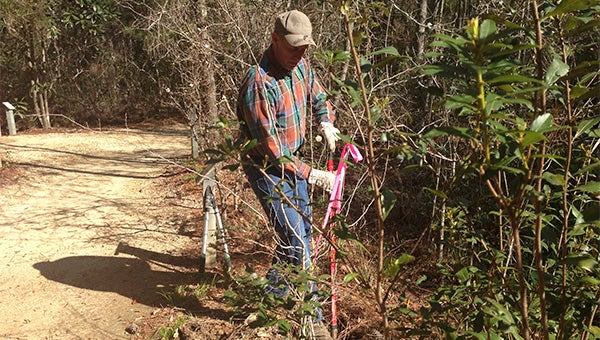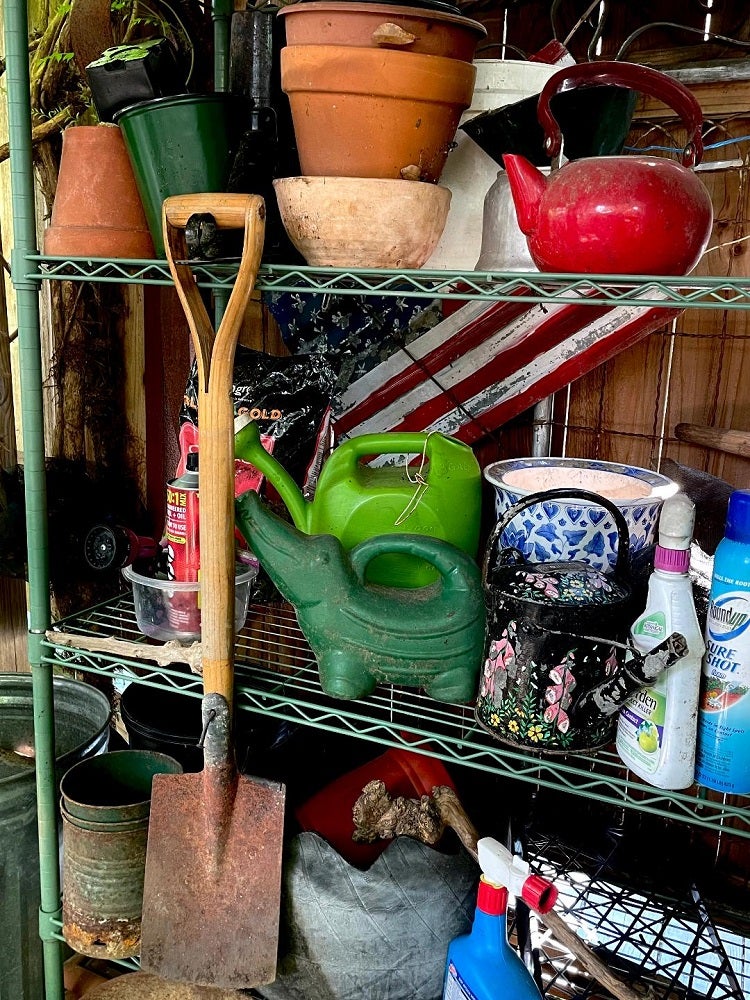Arboretum Paths: Gearing up for planting season!
Published 7:00 am Wednesday, February 8, 2017

Planting trees in the winter months gives them ample time to become established before hot summer day return (Photo credit: Pat Drackett).
By Pat Drackett, Director, The Crosby Arboretum
MSU Extension Service
After some sunny, warm weather this past weekend that made Saturday’s winter botany walk quite enjoyable and a children’s workshop on peanut butter pinecones for local wildlife, we have shifted gears and are preparing for our Arbor Day native plant sale on Saturday, February 18.
Winter in coastal Mississippi offers a good number of planting days. This cooler season is an excellent time to plant woody shrubs and trees, due to the long period of time for plant roots to become established before hot weather returns.
Take a winter walk through the Crosby Arboretum’s Woodland Exhibit and you will still find exciting things going on. We’ve just conducted a prescribed burn in our South Savanna Exhibit. Visit soon to experience this bare and blackened landscape. Soon, it will be transformed as yellow pitcher plant blooms begin to emerge and the seasonal parade of colorful flowers begins again.
Elliot’s blueberry (Vaccinium elliotii) is one of my favorite shrubs. Commonly seen along our pathways, it has a delicate beauty that is difficult to capture in a photo and best appreciated close up.
Many people know this native shrub as a “huckleberry”. Found along woodland edges in partial shade, it also does fine in sunnier areas. Sunny locations promote the best fall color, ranging from scarlet to burgundy hues.
Elliot’s blueberry can grow to eight feet tall and wide. Its fine green branches make it an attractive addition to your garden. Tiny bell-shaped blossoms have been adorning these plants at the Arboretum for weeks. The early bloomer is a popular destination for bees and other insects searching for nectar.
American holly, American sweet olive, inkberry holly, wax myrtle, red star anise, and yaupon holly are some of the evergreen shrubs found in our exhibits. They make excellent additions to landscape beds located along a property line, to provide a year-round screen.
American holly has a more formal appearance than yaupon and grows much taller. It can be used as a specimen tree in a lawn area, or an accent shrub in foundation plantings. While yaupon holly has a more informal, “wild” appearance, it can be pruned to make it much denser if desired. It is quite attractive as a multi-trunked specimen against a solid wall.
Near the Arboretum Visitor Center, American beech trees are sporting pointed buds that resemble small cigars. Beech leaves will remain on the branches throughout the winter months, until emerging leaves push them off. This characteristic makes them easy to identify in the landscape.
Check out the plump flower buds on our pink honeysuckle azalea (Rhododendron canescens) shrubs along the walk near the Pinecote Pavilion. It won’t be long until the swallowtail butterflies are sipping their nectar.
Have fun learning trees by their winter characteristics! Pick up a book on winter botany and bring it with you to use as a field guide the next time you take a stroll.
A special program celebrating the life of Aldo Leopold will be held at the Arboretum on Saturday, February 25. Conservationist, forester, philosopher, educator, writer, and outdoor enthusiast, his book, A Sand County Almanac, is one of the most respected books about the environment ever published, and he is regarded by many as the most influential conservation thinker of the twentieth century.
Two programs will be led by MSU Extension Forestry Specialist Dr. Glenn Hughes and Coastal Ecology Specialist Dr. Eric Sparks. From 9:30 to Noon, readings will take place from the Sand County Almanac. Books are available for purchase for $6. Participation is encouraged, but not required.
A documentary film, “Green Fire: Aldo Leopold and a Land Ethic for Our Time” will be shown from 1:00 to 3:00 p.m. After the film, there will be a discussion from the perspective of “Aldo”. The afternoon program will include short, selected readings and a “very special guest.” The cost for each program is $5 for non-members.
Attend our Arbor Day Native Plant Sale on February 18 from 9:00 a.m. to 3:00 p.m. For more information on upcoming activities and events call 601-799-2311 or see our website at www.crosbyarboretum.msstate.edu.
The Arboretum is located in Picayune, off I-59 Exit 4, at 370 Ridge Road and is open Wednesdays through Sundays from 9 a.m. to 5 p.m.


